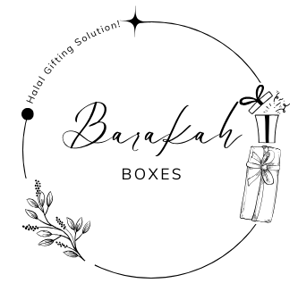The Concept of Hiba: A Foundation for Gifting in Islam
Discover the timeless tradition of Hiba in Islam—a beautiful act of generosity that transforms ordinary giving into a profound expression of love, compassion, and faith. Learn how this selfless practice, rooted in the teachings of the Prophet Muhammad (peace be upon him), fosters deeper connections and spreads blessings in modern times. Embrace the spirit of Hiba and make every gift meaningful.
1/20/20252 min read


The Concept of Hiba: A Foundation for Gifting in Islam
Few acts resonate with the beauty of human connection as profoundly as Hiba—a timeless tradition rooted in Islamic teachings. More than a simple gesture, Hiba represents a deliberate act of generosity that transforms ordinary giving into a spiritual exchange of love and goodwill. It’s a practice that not only enriches relationships but also embodies the essence of compassion and faith.
What is Hiba?
Hiba is defined as the transfer of the possession of property—whether movable or immovable—from one person to another, willingly and without any expectation of reward or compensation. It represents an altruistic act, purely motivated by the desire to benefit another. The person making the transfer is known as the donor (Wahib), the thing being transferred is referred to as the Mauhubah, and the recipient is called the donee (Mauhub lahu). In the language of Shar’i’ah, this act may also be referred to as Nihla or ‘Atiyya.
Essential Conditions for a Valid Hiba
To ensure that a Hiba is valid and complete, specific conditions must be fulfilled:
Clear Declaration: The donor must make a clear and unambiguous declaration of the donation. Ambiguity in intent or terms could render the act invalid.
Transfer of Possession: The act of Hiba is only complete once the donor physically or symbolically surrenders possession of the donated item to the donee.
These conditions emphasize the importance of intention and action in completing the process of Hiba, ensuring that it is a deliberate and meaningful act.
The Legal and Spiritual Basis of Hiba
The practice of Hiba is deeply rooted in the teachings of the Holy Prophet Muhammad (peace be upon him). He encouraged Muslims to exchange gifts as a means of fostering love and strengthening bonds within the community. The Prophet (peace be upon him) said:
“Give presents to one another, for this would increase your mutual love.”
This profound hadith not only underscores the legality of gifts in Islam but also exhorts believers to engage in gift-giving as a means of cultivating harmony and affection.
Unanimous Agreement Among Jurists
Islamic jurists from all schools of thought are in perfect agreement on the validity of Hiba. This consensus highlights the universality and timeless relevance of the practice within the Islamic framework. Whether it is a small token of appreciation or a significant donation, the act of Hiba exemplifies selflessness and reinforces the values of gratitude and generosity.
Hiba in Modern Times
In today’s fast-paced world, the concept of Hiba can serve as a reminder of the importance of meaningful connections. By giving gifts or sharing our resources, we not only fulfill a noble Sunnah but also contribute to the well-being of our relationships and communities. Platforms like Barakah Boxes embody this spirit, offering halal gifting solutions that make it easier to express love and care in line with Islamic values.
Hiba is more than just an act of giving; it is a powerful expression of love, generosity, and unity. Rooted in the teachings of Islam and reinforced by the example of the Prophet Muhammad (peace be upon him), it encourages us to go beyond material transactions and foster genuine human connections. By embracing the practice of Hiba in our lives, we can spread blessings (Barakah) and strengthen the bonds that unite us as an ummah.
So the next time you think about giving, remember the essence of Hiba and let your gift be an embodiment of love and goodwill.
